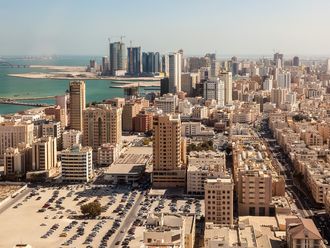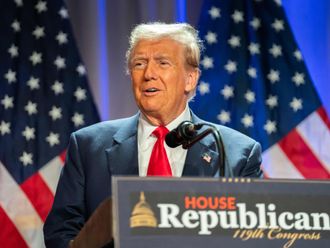Manama: Italy's Foreign Minister Franco Frattini called it "the September 11th of world diplomacy", but for most Arab media, the repercussions of the secret diplomatic cables published by the whistle-blowing website WikiLeaks have not been felt yet.
Most print media did not publish the cables or excerpts, mainly for local considerations or for their late availability.
Newspapers in Kuwait have a tendency to close their pages early, a fact that meant they missed the diplomatic cables that were posted later in the evening.
Some dailies did refer to the plan to publish and published reports by news agencies quoting mainly US officials on the grave danger of posting or printing the secret exchange of information.
In Bahrain, where newspapers close late, the dailies referred to the news about the controversial leaks, but avoided making specific references to the content of the cables.
Qatari newspapers in Arabic adopted a similar stance, but dailies in English published international reports about the issues and made general references to the cables.
In the broadcast media, where time is not a crucial factor, most stations carefully chose to skirt the issue or to doctor information according to their ideologies or interests.
For Al Jazeera, the most viewed channel in the Arab world, the news about the leaks was limited to the official US stance and to one-line references to some of the cables.
The blogosphere was more forthcoming, extensively covering the issue, offering comments on the views and posting direct links to the diplomatic cables.
In his Twitter account, Chan'ad Bahraini had wondered upon the release of the first cables on Arab countries about the handling of the issue by a well-known television station. "Will be interesting to see!" he wrote.
Kuwaiti bloggers focused mainly on football following the qualification of their national team for the semi-final match of the Gulf Cup. The much-anticipated match between Real Madrid and Barcelona on Monday evening was also a top story among bloggers.
However, Issandr El Amrani, a journalist living in Cairo, believes that the records of private conversations between American officials and Arab leaders might reverberate strongly in the Arab world.
"I've only had time to look at a handful of the Wikileaks cables, but while many may just confirm certain widely held theories, they also provide tremendous insight into the day-to-day analysis of embassy officials and a fascinating record of conversations with world leaders, security chiefs, senior politicians and diplomats across the Middle East," he wrote on his blog the Arabist.
"It's a treasure trove for any journalist or analyst to understand US positions and compare them to public positions, but even more of a find for doing the same for Middle Eastern states... I'm quite shocked, to a greater extent than the Iraq leaks, about the diplomatic damage this will do. It's still early days, and much of this will be recuperated for the regional media wars."












